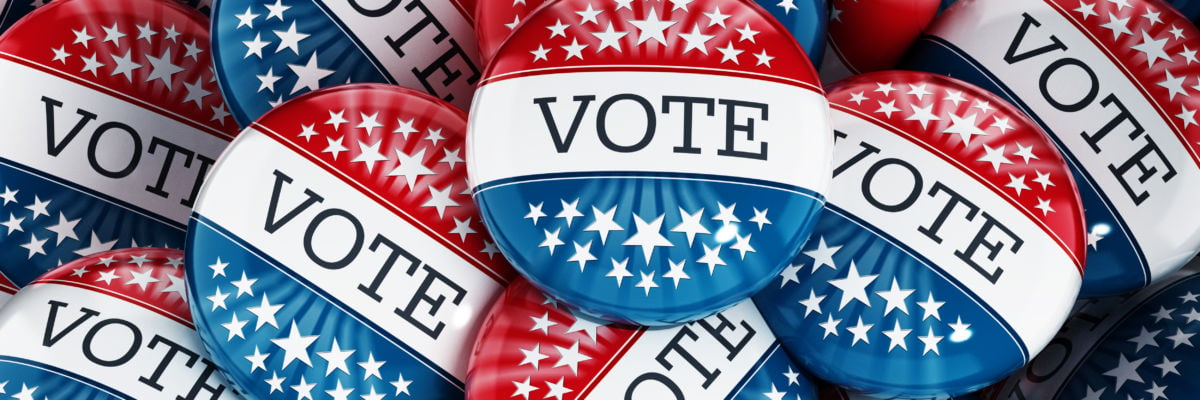
You squirm and roll your eyes. It’s election season, and your pastor has given his opinion on another political issue in his bulletin column. You like your pastor. He is a good priest, and you are so grateful for him. But when it comes to this topic . . . you just don’t see it the way he does.
Does being Catholic mean listening to your pastor on politics? Can he tell you how to vote? How does the “separation of Church and State” apply?
You should note that your pastor’s stance on an issue might be very different from that of the priest at the next parish down the road. This helps us clarify that we should worry less about what a particular priest says or thinks about political matters and more about what the Church teaches. In fact, the Church does not think that priests are the go-to source for political guidance. As the Vatican II document Guadium et Spes puts it,
secular duties and activities belong properly although not exclusively to laymen. . . . Let the layman not imagine that his pastors are always such experts, that to every problem that arises, however complicated, they can readily give him a concrete solution, or even that such is their mission. Rather, enlightened by Christian wisdom and giving close attention to the teaching authority of the Church, let the layman take on his own distinctive role.
So should we wholeheartedly embrace the “separation of Church and State”? Though this phrase does have more intellectually robust and morally sound definitions, what it often means in our modern context is the exclusion of religious language, thought, and even moral reasoning from politics.
With that understanding, the answer is “no”—this is not an option for the Christian. It also would have been completely alien to the Founders of our country and even most secular Americans until quite recently. We have a duty to bring the gospel to the social and political order. As stated in paragraph 43 of Gaudium et Spes,
It is for them (all Christians) to give an example by their sense of responsibility and their service of the common good. In this way they are to demonstrate concretely how authority can be compatible with freedom, personal initiative with the solidarity of the whole social organism, and the advantages of unity with fruitful diversity.
Our politics must be formed by our faith. So is there a Vatican checklist, where we can look up the “Catholic position” on particular policies or candidates that we, the lay faithful, are supposed to endorse?
No, there is not. Just as the Church does not have a program of “Catholic Medicine,” it also does not have a list of policies that make up “Catholic Politics.” Rather, the Church recognizes that there may be valid differences in opinions among Catholics:
Often enough the Christian view of things will itself suggest some specific solution in certain circumstances. Yet it happens rather frequently, and legitimately so, that with equal sincerity some of the faithful will disagree with others on a given matter. . . . They should always try to enlighten one another through honest discussion, preserving mutual charity and caring above all for the common good (Gaudium et Spes 43).
These questions call for what is known as “prudential judgments,” or decisions that best solve a problem in the particular time and place. The duty to care for the poor is timeless, but how to go about it may look different in twelfth-century Assisi compared to twenty-first-century New York City. Good people with well thought out reasons may arrive at different or even opposing ideas on the best way to approach a given issue. Even bishops and Church documents give suggestions or opinions on practical matters that may be at odds with one another.
When it comes to the question of interventions in the prudential order, it could happen that some Magisterial documents might not be free from all deficiencies. Bishops and their advisors have not always taken into immediate consideration every aspect or the entire complexity of a question (Donum Veritatis 24).
This does not mean that the Church has nothing authoritative to say on moral issues pertaining to politics, just as it is not silent on moral issues encountered in the medical field. The Church has authority from Christ through the bishops and popes to define faith and morals. We cannot reject this and still be faithful Catholics. We can disagree, however, on the best way to apply such teachings to complex realities. As Trent Horn puts it,
Unlike principles of doctrine and morality, the Church has not definitively taught which specific answers the faithful should embrace when it comes to implementing moral principles. . . . In some cases, differing geographical, cultural, social, or economic circumstances could change which answer is most appropriate for a given community.
If your priest preaches the moral principles laid out by the Church, then you should prayerfully listen and apply them to your political thought. You are not adopting his opinion; you are trying to live out the Christian life in how you vote.
If, however, he puts forth his opinion on particular ways to meet those moral demands, you should feel free to disagree with him if you have prayerfully researched and thought through the issue and come to an opposing conclusion.
Most priests avoid offering their prudential judgements in parish communications. It could be an unnecessary barrier to the Faith if people confused your pastor’s opinion for the gospel. What he (and you!) must remember is the following caution from Gaudium et Spes:
It is necessary for people to remember that no one is allowed in the aforementioned situations to appropriate the Church’s authority for his opinion. They should always try to enlighten one another through honest discussion, preserving mutual charity and caring above all for the common good.
We may have differences of opinion on how to best apply Church teaching to particular social, economic, or political challenges. Let us make sure that when finding solutions, we neither neglect the moral law nor give an unnecessary stumbling block to others by conflating our judgment calls with Church teaching. Instead, let us communicate the light and truth of the gospel so that they can be saved and contribute their own insights into these prudential discussions for the common good.



